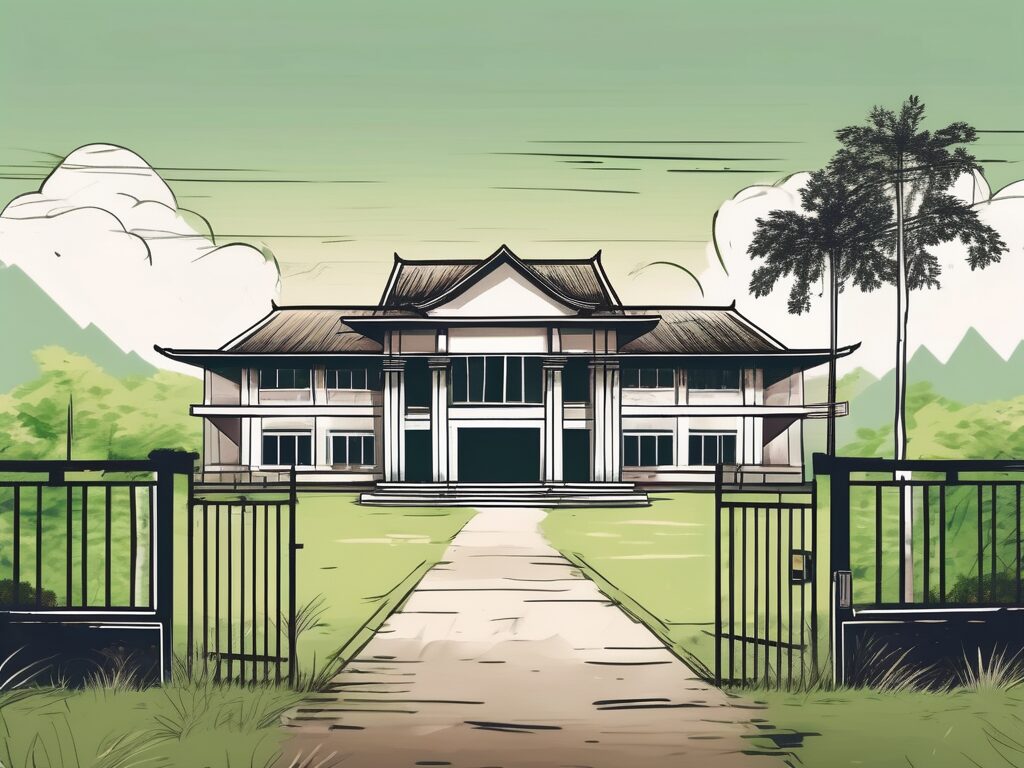Education is the cornerstone of any society’s development. It’s the key that unlocks the door to a world of opportunities, equipping individuals with the skills and knowledge they need to thrive in today’s fast-paced, globalised world. However, not everyone is fortunate enough to have easy access to quality education. In Thailand, a country known for its vibrant culture and stunning landscapes, there are numerous barriers that hinder the educational progress of many children and young adults.
Financial Constraints
The first and perhaps most obvious barrier to education in Thailand is financial constraints. Despite the government’s efforts to provide free basic education, many families still struggle to afford the associated costs. These include expenses for uniforms, textbooks, transportation, and meals. For families living in poverty, these costs can be prohibitive, forcing them to choose between sending their children to school or putting food on the table.
Imagine, if you will, the predicament of a family in the UK, who despite free education, struggles to afford the ‘hidden costs’ of schooling – uniforms, school trips, and the like. The situation in Thailand is similar, but often more severe due to higher levels of poverty.
The Impact of Poverty
Poverty not only affects the ability of families to afford education, but it also forces many children to work to support their families. This leaves them with little time or energy to focus on their studies, further exacerbating the cycle of poverty and educational disadvantage.
It’s a bit like trying to study for your GCSEs while working a full-time job. The stress, fatigue, and lack of time can make it nearly impossible to succeed acadically.
Geographical Challenges
Another significant barrier to education in Thailand is geographical location. Many schools, especially those offering secondary education, are located in urban areas. This poses a major challenge for children living in rural or remote areas, who may need to travel long distances to reach their schools.
It’s akin to living in the Scottish Highlands and having to commute to Edinburgh every day for school. The long travel times, coupled with the lack of reliable transportation, can make regular school attendance a daunting task.
Lack of Infrastructure
The lack of infrastructure in rural areas further compounds this problem. Many rural schools lack basic facilities such as libraries, laboratories, and even toilets. This not only affects the quality of education but also discourages attendance, particularly among girls.
Imagine trying to study in a school without a library or a science lab. It’s like trying to learn to swim without a pool – you can read about it all you want, but without the proper facilities, it’s a much more difficult task.
Sociocultural Factors
Sociocultural factors also play a significant role in limiting access to education in Thailand. Traditional gender roles often dictate that girls should focus on domestic duties rather than pursuing education. This is particularly prevalent in rural areas and among ethnic minority groups.
It’s a bit like the outdated notion in some parts of the world that women should stay at home and take care of the family while men go out to work. These stereotypes can have a profound impact on girls’ educational opportunities and aspirations.
The Role of Ethnicity
Ethnicity is another sociocultural factor that can hinder access to education. Thailand is home to numerous ethnic groups, each with its own language and culture. However, the Thai education system largely follows a one-size-fits-all approach, which can alienate students from minority backgrounds.
Imagine being a Welsh student in an English school where all lessons are taught in English and there’s little recognition of Welsh culture. It’s a similar situation for many ethnic minority students in Thailand, who often feel marginalised and disengaged in school.
Overcoming the Barriers
Overcoming these barriers to education in Thailand requires a multi-faceted approach. It involves addressing not only the financial and geographical challenges but also the deep-seated sociocultural issues. This includes promoting gender equality, respecting cultural diversity, and investing in infrastructure and resources in rural areas.
It’s a bit like solving a complex puzzle – each piece is crucial and the picture is incomplete without any one of them. But with concerted efforts from the government, non-governmental organisations, and the community, it’s a puzzle that can be solved.
Education is a fundamental right, and every child in Thailand, regardless of their socioeconomic status, geographical location, or ethnic background, deserves the opportunity to learn and grow. By breaking down these barriers, we can help pave the way for a brighter, more inclusive future for all Thai children.
Empower Your Educational Journey with IPGCE
As we strive to dismantle the barriers to education in Thailand, it’s essential for educators to enhance their qualifications and join the global teaching community. IPGCE offers a transformative International Postgraduate Certificate in Education, designed to elevate your professional credentials and expand your career horizons. Embrace the opportunity to increase your interview callbacks, accelerate career progression, and connect with a worldwide network of educators. With our flexible online study options, you can balance your professional development with your current commitments. Don’t let inadequate credentials limit your potential. Join the UK’s #1 Teacher Training Course today and be the change you wish to see in the educational landscape of Thailand.

